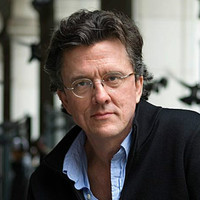The George Saunders Interview
"For example, I remember reading Hemingway and loving his work so much—but then at some point, realizing that my then-current life (or parts of it) would not be representable via his prose style. Living in Amarillo, Texas, working as a groundsman at an apartment complex, with strippers for pals around the complex, goofball drunks recently laid off from the nuclear plant accosting me at night when I played in our comical country band, a certain quality of West Texas lunatic-speak I was hearing, full of way off-base dreams and aspirations—I just couldn’t hear that American in Hem-speak. And that kind of moment is gold for a young writer: the door starts to open, just a crack."

















